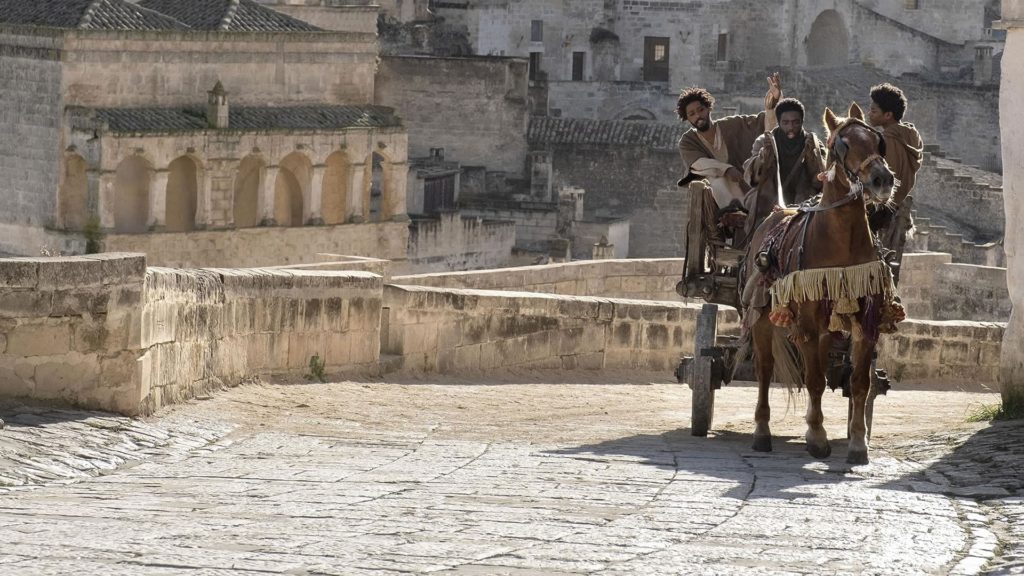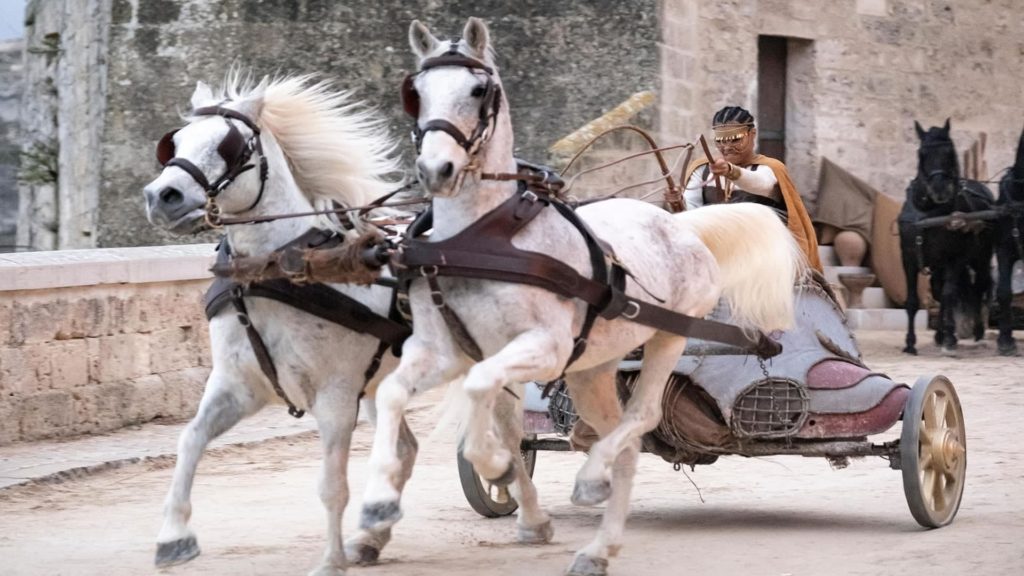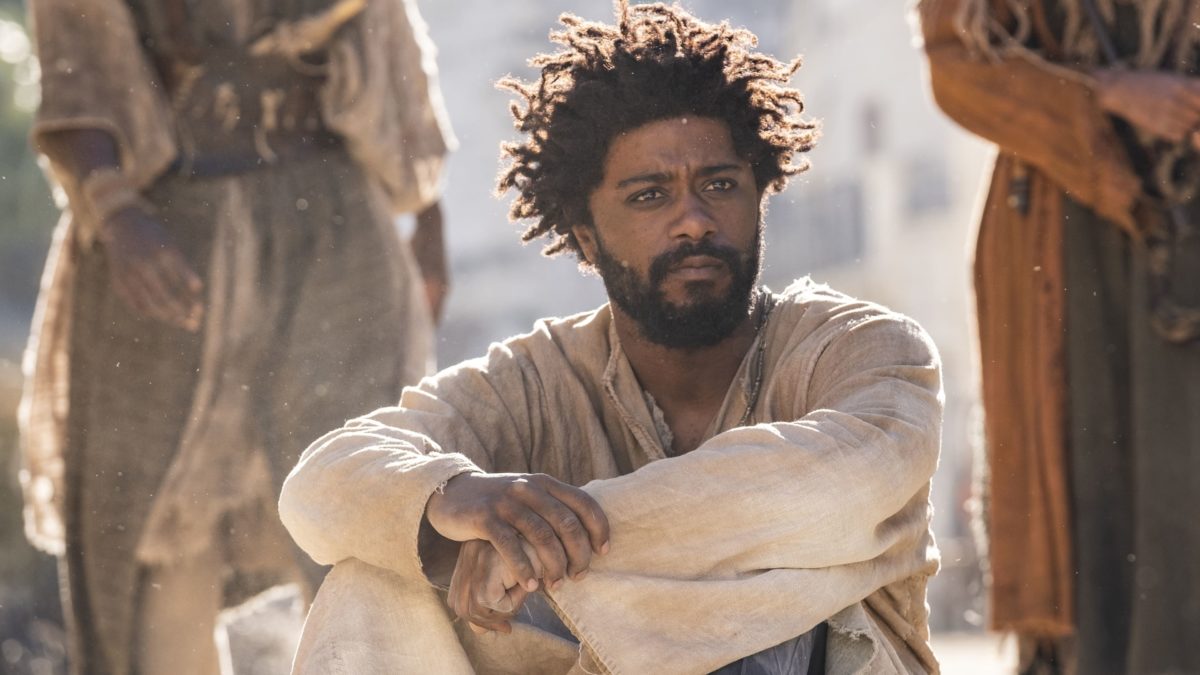A reading from the Gospel according to Jeymes
The Book of Clarence is a thought-provoking and ambitious sophomore film by director Jeymes Samuel following the slick but straightforward western The Harder They Fall. While his debut feature lacked a distinct directorial voice, Samuel has basically the opposite problem with this Life of Brian- or Rosencrantz and Guildenstern Are Dead-esque Gospel satire, wading into a messy jumble of themes that explore the complex relationship between faith, self-identity, and the challenges faced by marginalized communities in the context of Western Christianity.
Set in Jerusalem concurrent with Jesus’s life, The Book of Clarence follows the story of its titular character (a terrific LaKeith Stanfield), as he wonders why the so-called Savior hasn’t made his own life any happier and finds himself on his own crucified Messiah journey. The film juggles several ideas at once, showing a healthy spiritual skepticism without outright mocking Christianity, though he pretty clearly leans anti-theist. Samuel interrogates the shortcomings of an organized religion that profits its leaders and not its people, as Clarence creates a profitable racket declaring himself a religious icon.

Like The Harder They Fall, the film’s cast is once again entirely led by Black actors (with one cheeky exception late in the film). Anything else would have been surprising given that Samuel’s m.o. seems to be “period piece with a cool-as-hell Black cast.” The Harder They Fall didn’t have much to say about race despite a setting (post-Civil War America) where it would have been an obvious topic. It’s interesting, then, that The Book of Clarence has a lot to say on the topic of skin color defining one’s path in the world: it’s less organic in this context which is maybe why it’s so intriguing and fresh.
But that cast is, indeed, excellent and immensely cool. Samuel ropes in no less than a dozen great turns, with Stanfield’s magnetic presence the anchor. Teyana Taylor, Omar Sy, David Oyelowo, Alfre Woodard, and several others steal scenes. But my favorite performance besides Stanfield is probably RJ Cyler, who brings an eccentric but intense energy that feels just right for a street corner preacher in 33 CE. Cyler firmly has my attention after also being quite funny in The Harder They Fall — I look forward to his upcoming roles.

As thoughtful and funny as The Book of Clarence is, it’s a bit tedious at times. The pacing is quite uneven as it meanders through its themes and subplots. Samuel’s writing, while brimming with ideas, has a lack of urgency that had me checking my watch once or twice, and might have benefited from a ruthless edit by a seasoned writer. Honestly, the film’s execution often feels more like prestige television than a movie proper, with its broad thematic scope and occasional lack of cohesion, plus a narrative looseness that features a bunch of episodic chunks smushed together.
And yet I quite like the film. It’s an engaging and provocative watch, and it made me laugh several times. It’s not often you find a film so eager to directly confront the topic of faith and its role in our lives, especially one that’s ostensibly a punchy comedy. The setting and tone are unusual. I can’t imagine it finding a huge audience, but I suspect it will earn its ardent admirers.
If nothing else, Jeymes Samuel is getting better and more interesting, and I hope he keeps working. (And his strengths in music and sound mixing are better than ever — this film sounds great.) The Book of Clarence showcases Samuel’s growth as a filmmaker, taking bigger swings and pulling from broader influences, with touches of Hamilton’s historical-racial-inversion and Mel Brooks’ Bible sketch comedy. Who knows what stuffy period genre Samuel will tackle next. Fingers crossed for steampunk.
- Review Series: Jeymes Samuel
Is It Good?
Good (5/8)
Dan is the founder and head critic of The Goods. Follow Dan on Letterboxd. Join the Discord for updates and discussion.


2 replies on “The Book of Clarence (2023)”
I’m hoping for Golden Age musical myself. (-;
One can only hope that this film gets released somewhere I can actually watch it: one misses the days when you only had to pay to get into the local cinema, rather than keep track of a half-hundred streaming services AND pay each of them.
> Golden Age musical
Ooh now that you say that, I could see it, especially with his background in music. I’m not sure he has any experience writing showtunes, but that’s why it would be an experiment, right!?